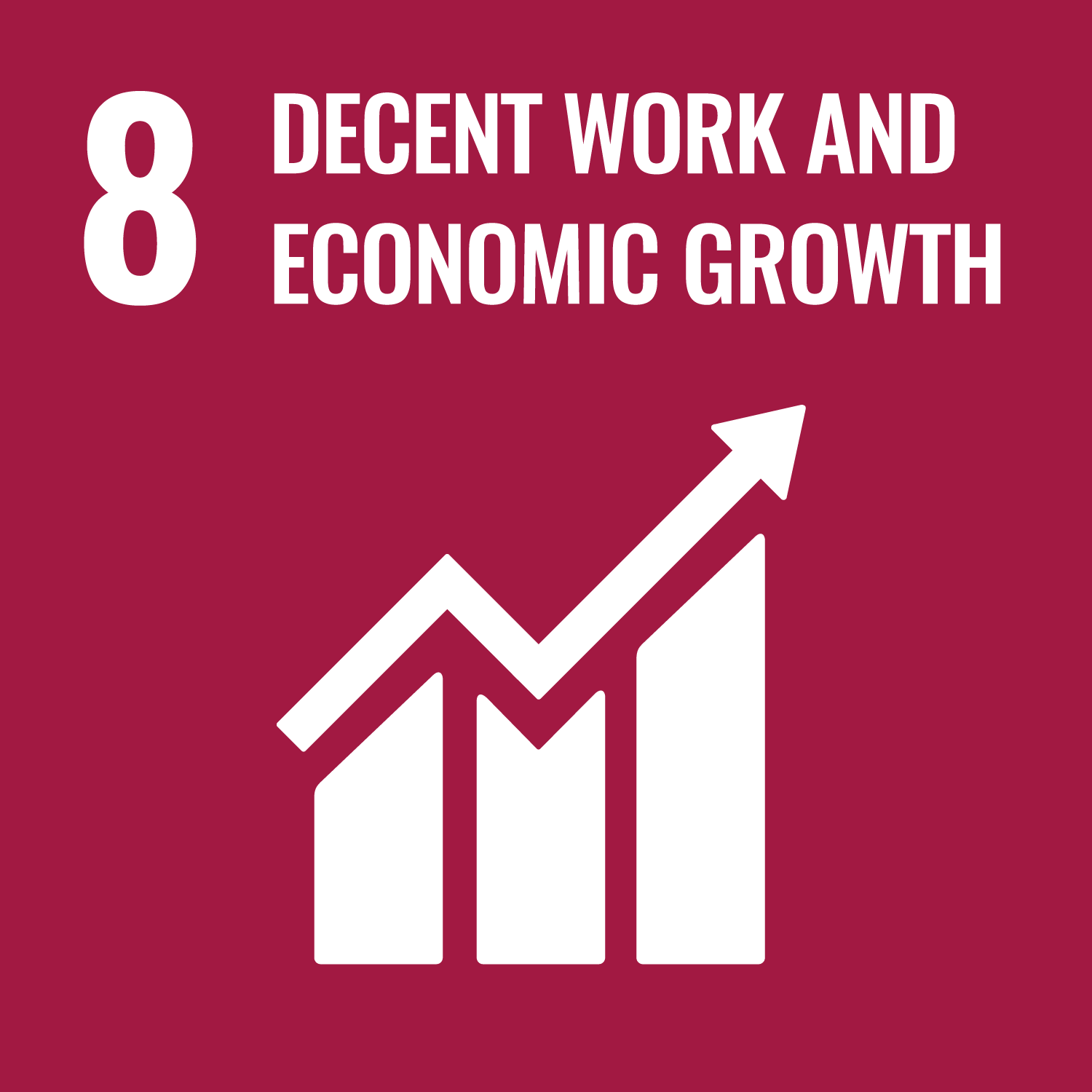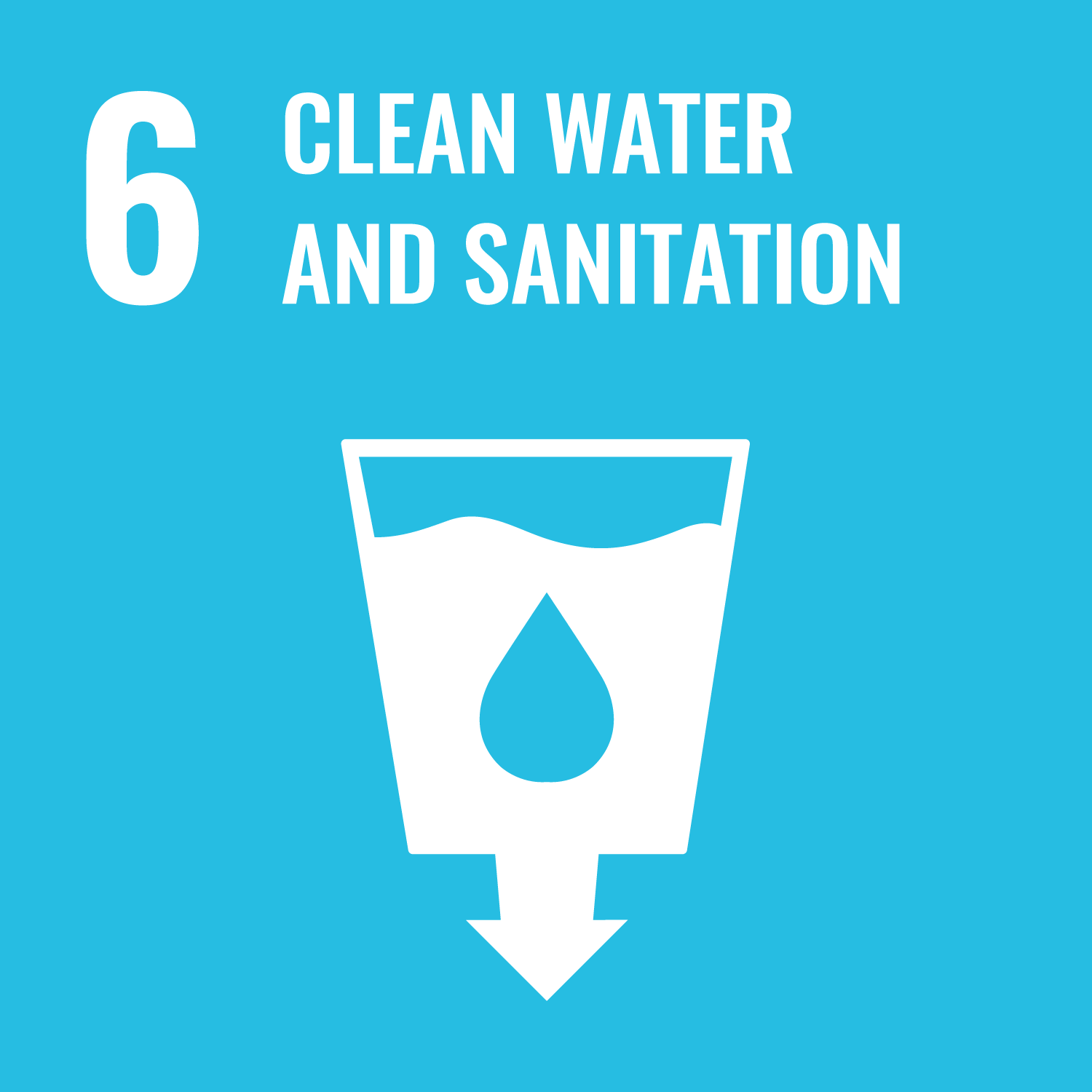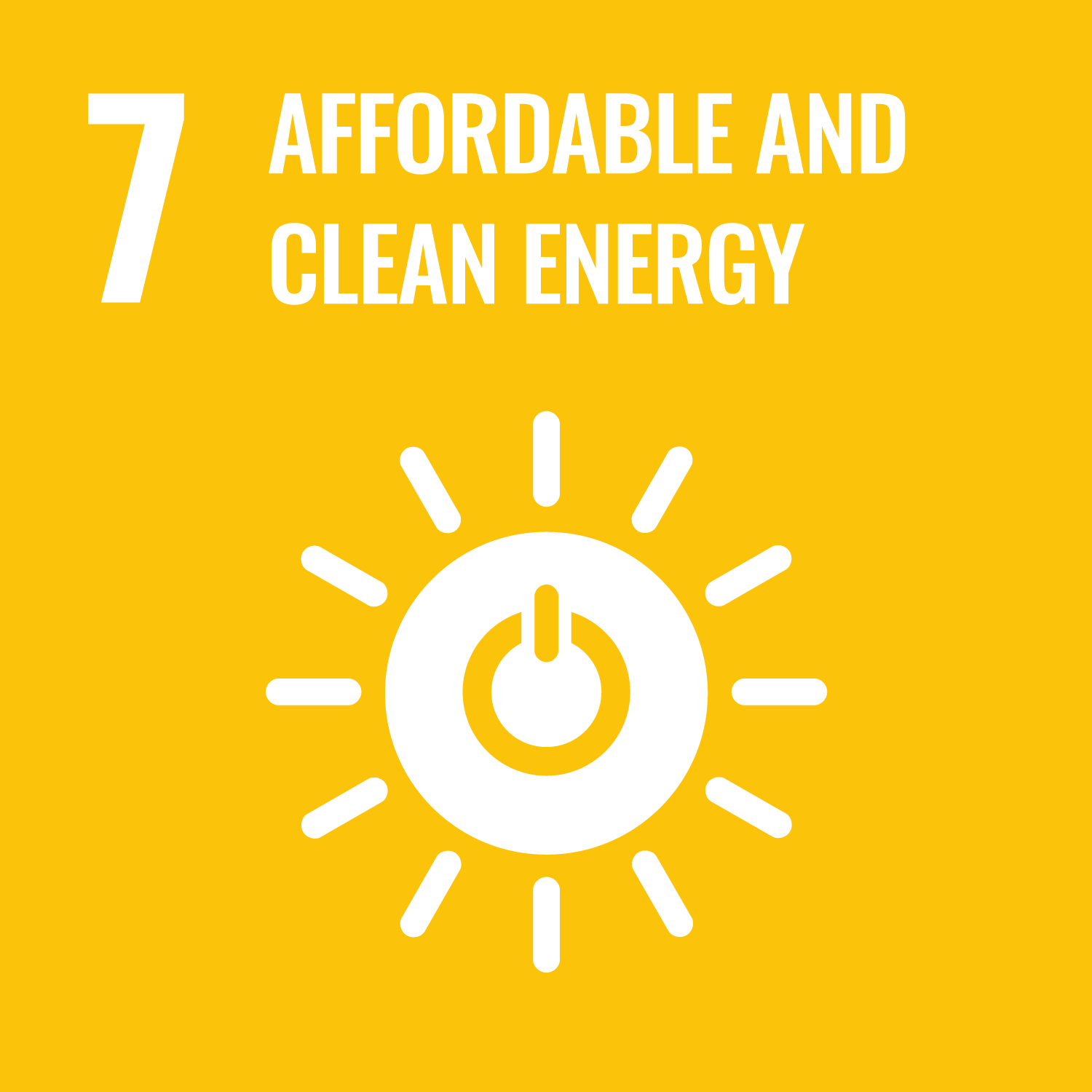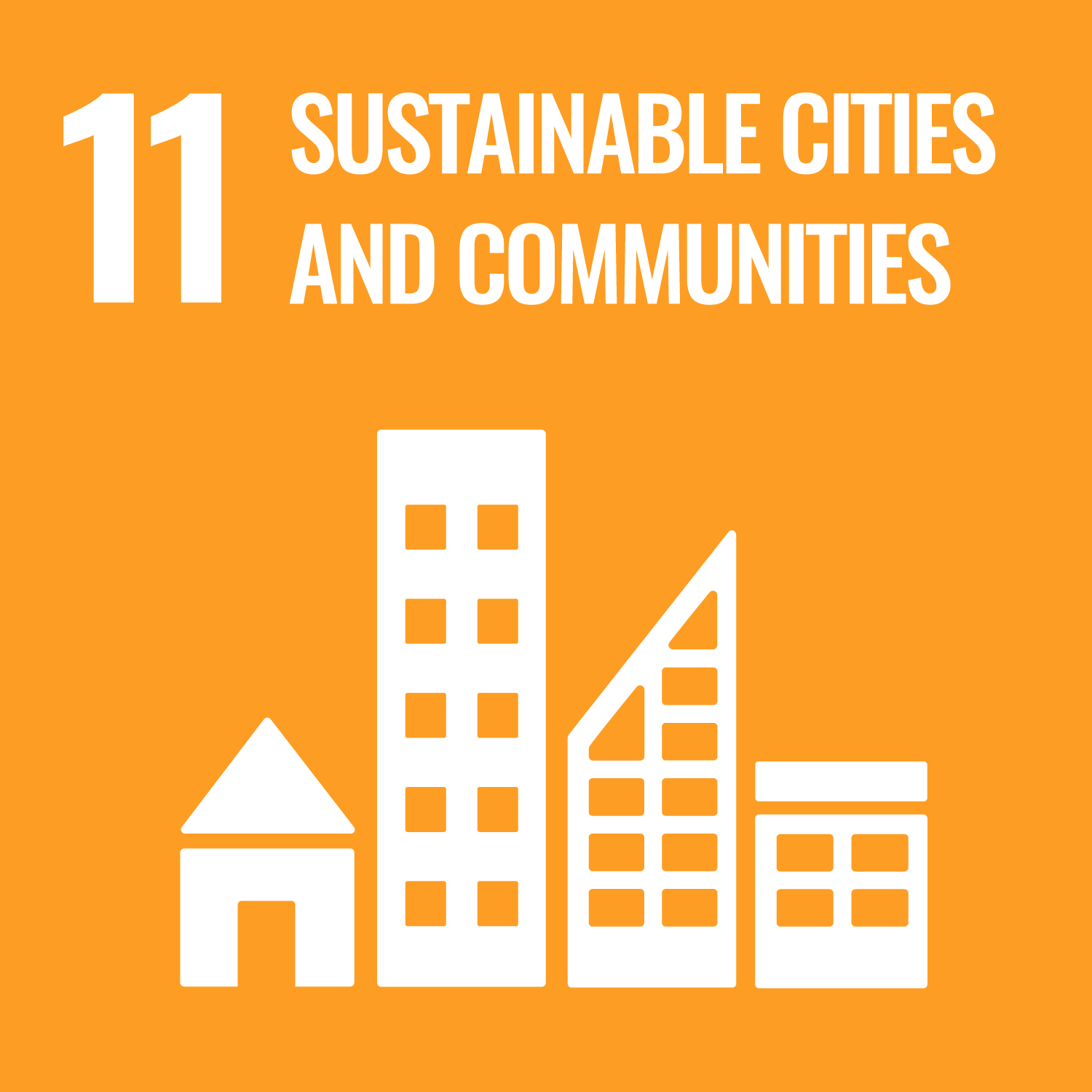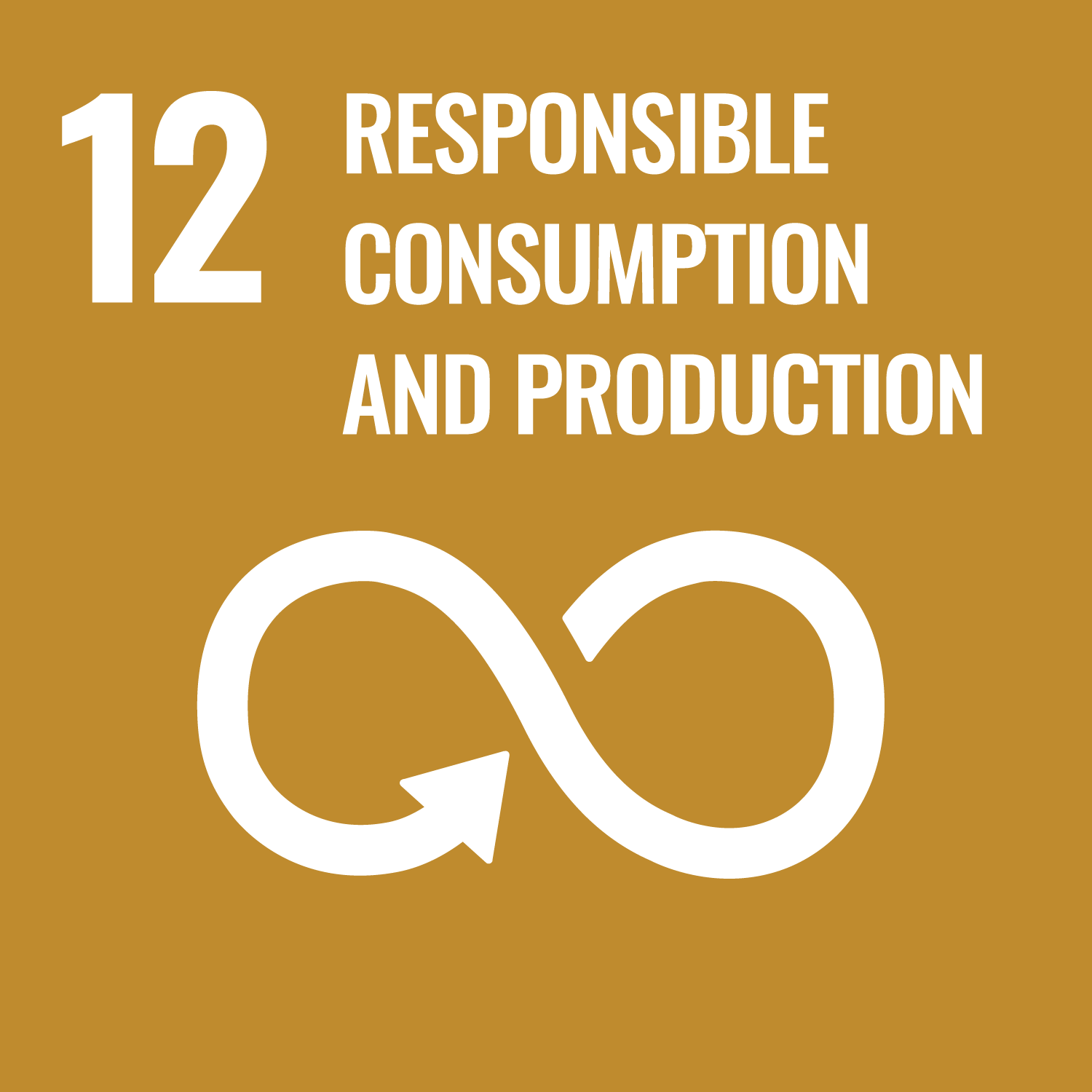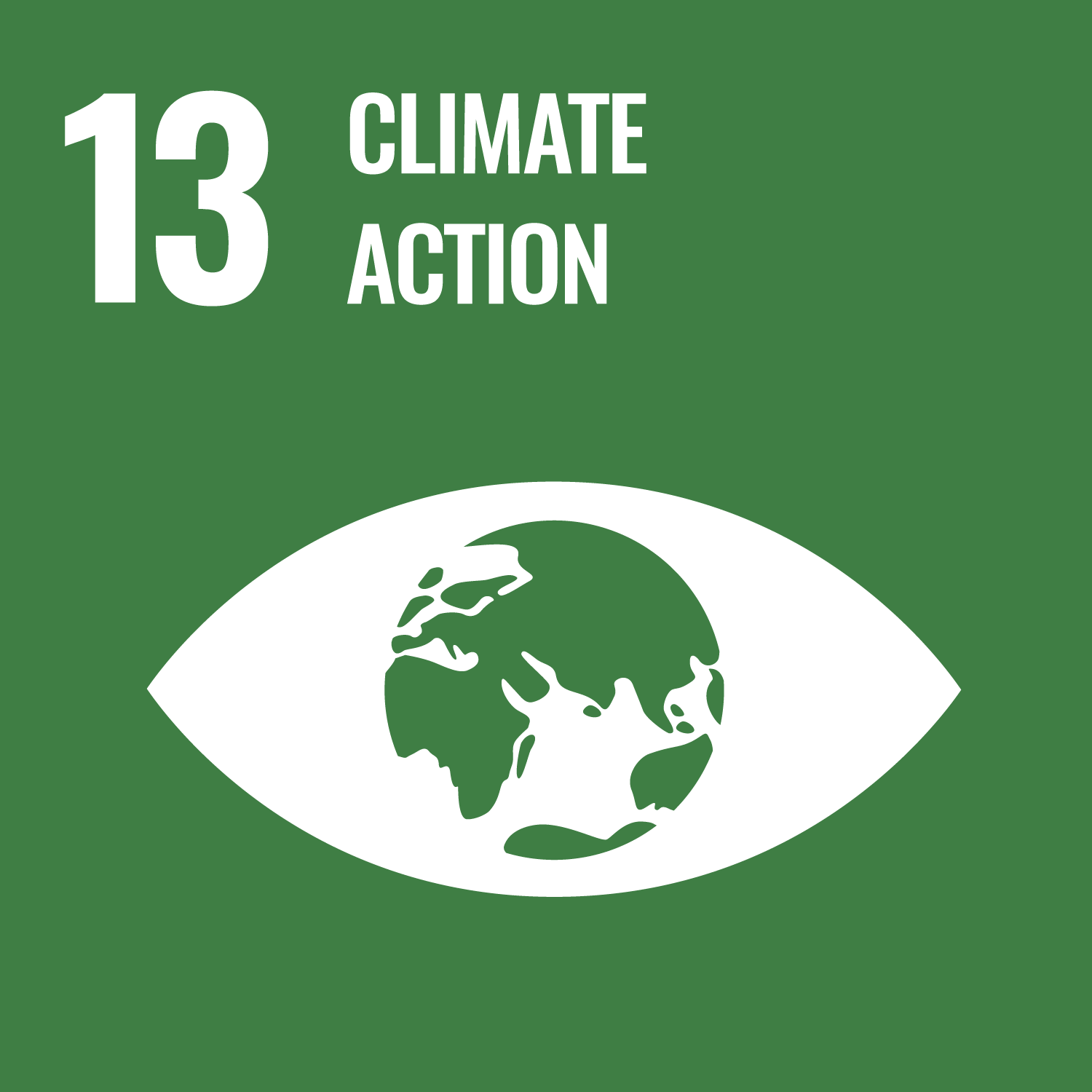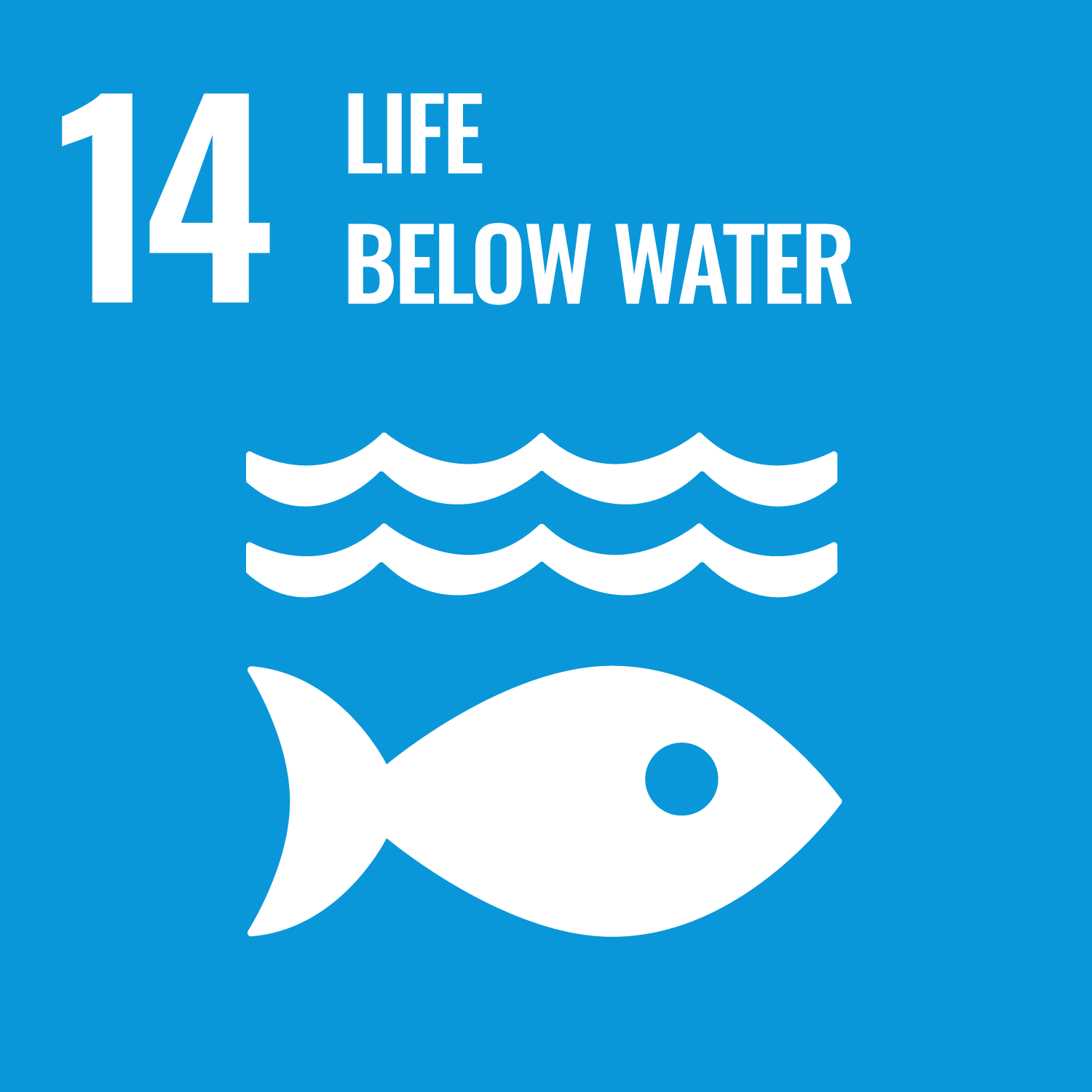Sustainability in SHIKOKU CHEMICALS CORPORATION Group

Sustainability in SHIKOKU KASEI Group
-
The Concept of Sustainability
Under our longstanding corporate philosophy of "Doku-sou-ryoku (creativity)," SHIKOKU KASEI Group considers addressing the global environment and social issues as one of the most important matters of management policy.
Our approach to the "vision for 2030," set forth in our long-term vision of "Challenge 1000," and "YONPOYOSHI(favorable in all four directions)," which is the action plan, defines our group's sustainability.
Since environmental and social issues are diverse, we have identified important issues for prioritization (materiality) that will lead to sustainable company and social growth. We will aim to work efficiently and maximally to serve a business that contributes to resolving issues and the realization of a sustainable society.
Moreover, the achievement of the "Challenge 1000" financial goals will also lead to an increase in our management resources. This will enable material solutions that are developed from the current state in terms of both quality and quantity, and lead to greater investment. We believe this will eventually result in a higher level of contribution for each stakeholder listed in the "YONPO-YOSHI" policy and further improve our group's sustainability. -
Continuous Sustainability Promotion
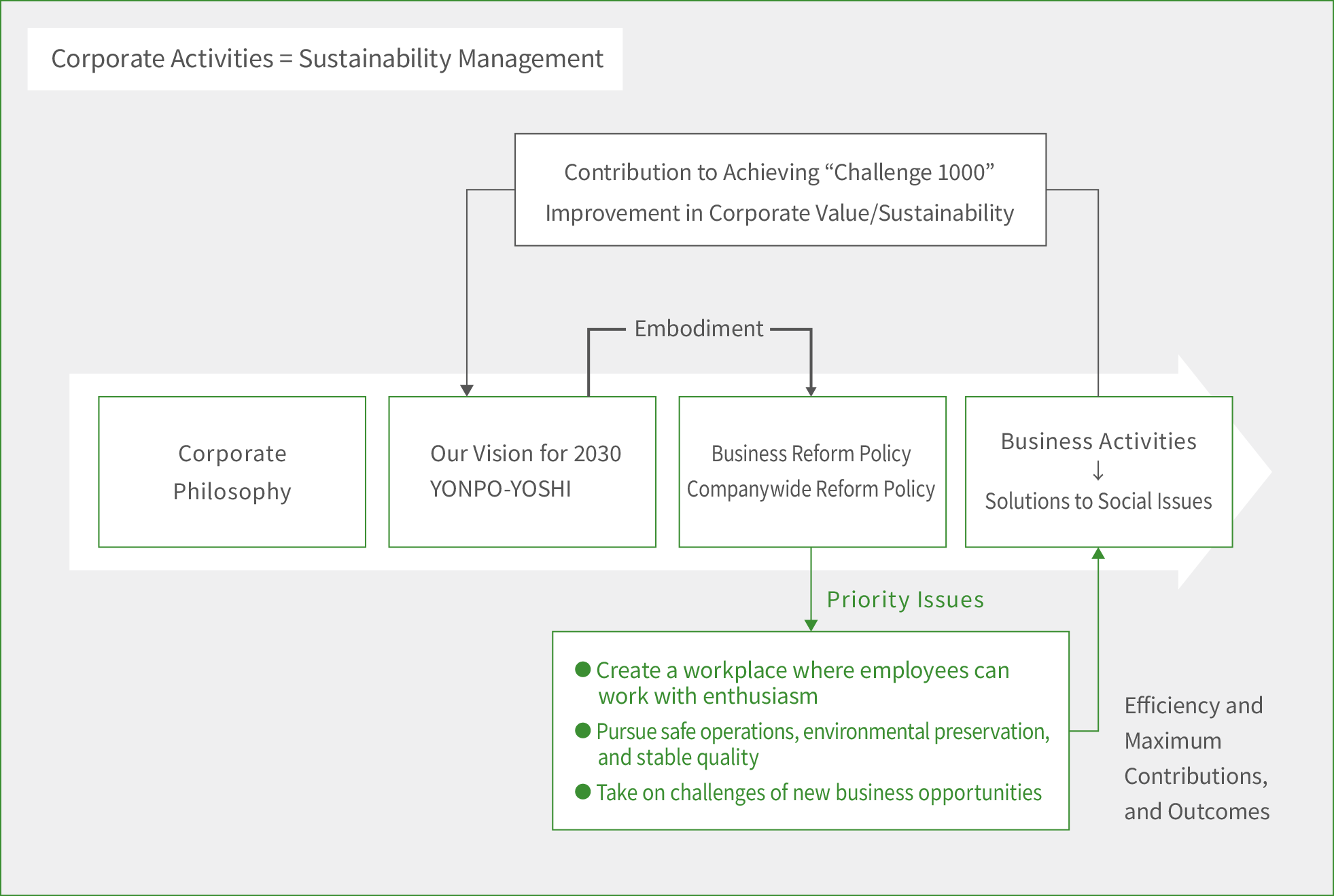
-
Promotion Structure
Initiatives geared toward achieving the long-term vision, "Challenge 1000," are implemented by each business and group company; this progress is reviewed and managed by each operating company. In addition, the Corporate Planning Department summarizes and regularly reports on the progress to SHIKOKU KASEI HOLDINGS CORPORATION's Board of Directors and Corporate Strategy Meeting, where decisions are made taking into account the potential impact on the environment and society.
The Group will continue to hold a dialogue with internal and external stakeholders to identify the expectations and demands of society and utilize them to promote sustainability activities.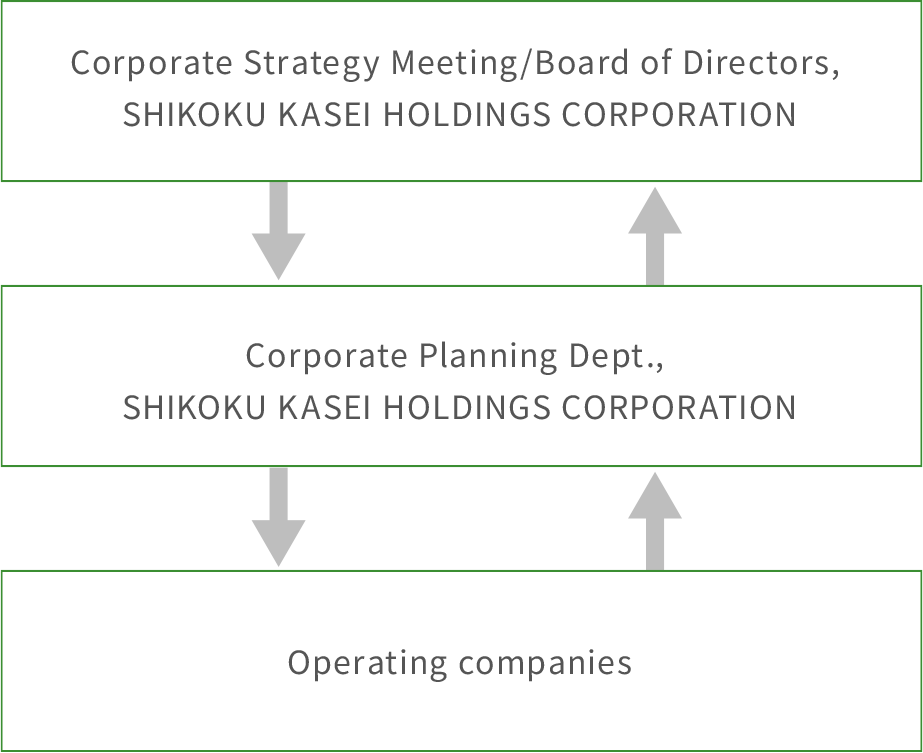
-
Identification Process
We identified materiality to be addressed in order to achieve our aspiration to “Toward ‘one-step-ahead, proposal’ company with creativity” by 2030 set forth in the long-term vision, “Challenge 1000”.
- Specific Processes
- The materiality of our group was determined through four processes.
- Step 1
- We identified issues that were of high priority to our stakeholders and our group from among the social issues addressed in the 17 goals and 169 targets of the SDGs.
- Step 2
- The relevant divisions within the company held repeated discussions on the issues of high priority, and thereby identified and examined the initiatives and target items.
- Step 3
- Dialogues were conducted with external experts on the draft content discussed internally, considering stakeholders’ perspectives.
- Step 4
- It was resolved at the Board of Directors.
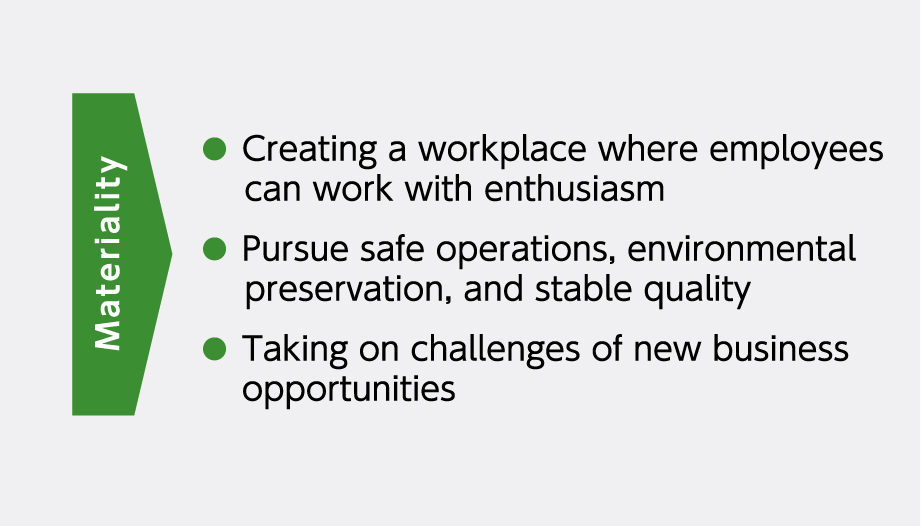
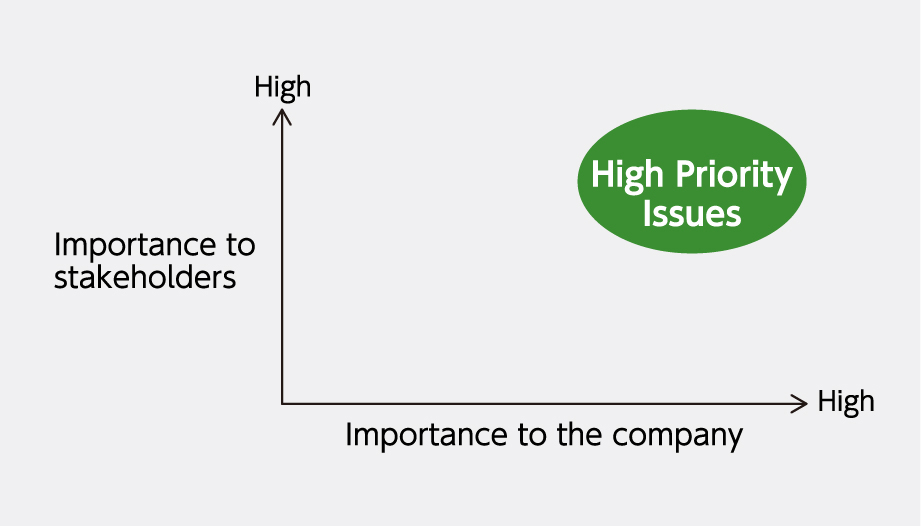
-
Materiality and Initiatives of SHIKOKU KASEI Group
Materiality Initiatives Target value at the end of 2025 Creating a workplace where employees can work with enthusiasm
- Promotion of work-life balance
- Action for flexible and divers work styles
- Promotion of mental and physical health of employees
- Recruitment and performance of diverse fuman resources
- Effective measures to eliminate harassment
- High engagement ratio from the employee survey:Measurement and operation
- Percentage of persons with high stress by stress check:8% or less
- Annual paid leave acquisition rate: 70%person or higher
- Certied asa Health and Productivity Management Outstanding Corporation
- Ratio of female managers:5% or more
- Employment ratio of people with disabilities:2.3% or more
Pursue safe operations, environmental preservation, and stable quality
- Foster a culture of safety
- Facilitate the transition to a decarbonized society
- Capital inverstments in safety/environment/quality
- Promote responsible care activities
- Strengthen compliance and risk management
- Establish a sustainable supply chain
- Lost time accident:0 case/FY
- GHG emissions:Decrased 30%, compared to FY2013
- Ratio of renewable energy use:10% or more
- Incidence of critical environmental and quality problems:0 cases
- Reduction in water consumption (chemical production volume unit at three chemical plants):
3% reduction compared to FY2020 - Requesting new business partners to comply with CSR:100%
Taking on challenges of new business opportunities
- Creation of products and services to solve social issues
- Promotion of open innovation
- Create a culture, develop human resources, and design systems to address challenges
- Sales from new sustainable products and services and the development of new businesses outside the framework of existing businesses: JPY 2.5 billion
- Improvement of new business unit structure:Establishment of a basic operation system
- Sales of existing businesses:JPY 77 billion
